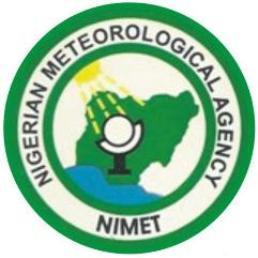NiMet, gave the advice in its 2018 Seasonal Rainfall Prediction (SRP).
In the SRP, NiMET said that farmers in Sokoto, Katsina, Yobe, Zamfara, Kebbi, Jigawa, Kano and Borno states were likely to experience severe dry spell in June.
It explained that the dry spell might continue for 10 to 18 days after its onset, adding that a moderate dry spell, which might last seven to 16 days, was expected in other places.
The agency also advised farmers around neighbourhoods like Yelwa, Bida and Abuja to refrain from early crop planting because of the predicted late onset dates for the 2018 farming season.
It said that the potential moisture availability during the onset period would not be sufficient enough for plant growth and development.
NiMet said that early rain cessation in areas such as Jos, Ibi and Ilorin was likely to create water stress, adding that there was, therefore, the need to supplement rain-fed agriculture with irrigation.
“Climate-smart agriculture should be encouraged, especially in the Sudano-Sahelian zone of the country through the use of economic trees like Gum Arabic, Date Palm, Shear and Jetropha, among others, for fencing,’’
NiMet said that zero tillage, mulching and other moisture conservation techniques should be adopted by farmers.
On livestock farming, NiMet warned that warmer-than-normal temperatures, predicted to occur in March and April, were expected to affect livestock production, particularly in the north-western region of the country.
It said that livestock mortality rate was expected to increase during these months due to temperature fluctuations, advising livestock farmers to acquire necessary vaccines for their animals.
NiMet also predicted that fish production was likely to be adversely affected as a result of the warmer-than-normal conditions, especially in the northern part of the country.
It urged fish farmers and aquaculture operators to take note of those areas which were predicted to have high run-offs in order to avoid associated impacts.
It, however, said that the annual rainfall amount of between 400mm to 3100 mm over the country would positively impact on agriculture, power generation, recreation and manufacturing activities across the country.
However, farmers in Nigeria under the Zero Hunger Commodity Associations commended Nigerian Meteorological Agency (NiMet) “for timely presentation of 2018 Seasonal Rainfall Prediction (SRP)” to the public.
The farmers National Coordinator, Dr Tunde Arosanyin, gave the commendation in an interview with Journalists on the sidelines of the 2018 SRP presentation.
He said that the association, a subsidiary of the UN Committee – Zero Hunger Nigeria Forum –was happy about the 2018 SRP presentation organised by NiMet with the theme “Seasonal Climate for Sustainable Development.”
Arosanyin added that the prediction was a welcome development because it would help farmers to plan properly before going into the 2018 farming season to avoid losses.
He explained that the 2017 SRP reviewed by the Agency showed 95.3 per cent achievement in terms of performance, “indicating there was head way in the agriculture sector.
“The 2018 SRP by NiMet was a welcome development and taking a case from the prediction of 2017 as reviewed by the Agency, achieving 95.3 per cent in terms of performance was great.
“To us as farmers, it was an excellent one. However, the information was in English and that was a big gap because we wish it could be adopted in various languages for rural farmers.
“This is because 70 per cent of our farming population does not have a good education to be able to interpret some of the forecasts.
“The burden is on us the farmers’ leaders at Zero Hunger Commodities to see how we can organise training at state and local levels to keep farmers abreast of the predictions.
“We will also inform farmers when rainfall will start and the quantity when to expect dry spell, the length and the intensity so as to take proactive steps before the occurrences to reduce wastage.”
The coordinator said the SRP was a good step in the right direction as agriculture became the major driver of the Nigerian economy.
He said, “it is critical for the Nigerian government to support farmers at all levels to be able to implement and interpret the SRP data effectively.”
Arosanyin also advised farmers to take the predictions seriously and not to rush into planting yet but wait until the rainfall set in properly.
He said “from the prediction today, there is going to be early rainfall but not advisable to plant until the rain has set in properly because there is no enough moisture present in the soil.
“So, planting can start from April to avoid losses recorded in previous years.”
The national coordinator appealed to state and Federal Government to bring back extension services to help in passing on information to farmers.
He explained that “ordinarily, it is the role of extension officers at the state and federal level to educate farmers on farming techniques in different languages for easy assimilation.
“However, they are no longer there but farmers organizations have willing collaborative partners to carry out the assignment effectively.”
WATCH TOP VIDEOS FROM NIGERIAN TRIBUNE TV
- Let’s Talk About SELF-AWARENESS
- Is Your Confidence Mistaken for Pride? Let’s talk about it
- Is Etiquette About Perfection…Or Just Not Being Rude?
- Top Psychologist Reveal 3 Signs You’re Struggling With Imposter Syndrome
- Do You Pick Up Work-Related Calls at Midnight or Never? Let’s Talk About Boundaries







